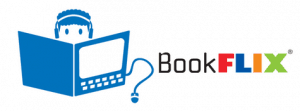calsfoundation@cals.org
Libraries and Loneliness: a New Year’s Reflection from Executive Director Nate Coulter
It must be human nature to want to classify events as either before or after some watershed event. I’m not smart enough to know why we do it but I often hear and find myself saying something happened “pre-pandemic” or “post-pandemic.”
I’m reluctant to start another year talking about a pandemic that for many was a source of trauma but there is value in assessing how we approach issues in comparison to how we did things before March 2020. No matter what industry you work in or where you live, the pandemic was a catalyst for change. It forced tremendous shifts in how we all do business, live our individual lives, and interact with one another. For the better in some ways; maybe not in others.
In the world of libraries, people lost the use of a crucial third space while we were closed. People who were on the fringes found themselves pushed further out and isolated more so. We spent the bulk of 2021 and 2022 working to get the library back up and running, hosting events as it was safe, and working to be that hub for the community that we have always been. And yet, in other ways, things were not recovered from the pandemic.
In May of last year, the U.S. Surgeon General issued an advisory, warning of an epidemic of loneliness and isolation in America that comes from a lack of connectedness. The health consequences of this isolation can be akin to those associated with smoking 15 cigarettes a day. While the Surgeon General noted that loneliness and isolation was an issue before the pandemic (there’s that phrasing again!), it was worsened by shutdowns and “postponed or canceled meaningful life moments and celebrations like birthdays, graduations, and marriages.” The advisory also points out that “the COVID-19 pandemic offers an opportunity to reflect more deeply on the state of social connection in our lives and in society. As we emerge from this era, rebuilding social connection and community offers us a promising and hopeful way forward.”
The Surgeon General lays out six foundation pillars for rebuilding connection, starting with “social infrastructure,” which the report defines as: “the physical elements of a community (parks, libraries, playgrounds) and the programs and policies in place.” I am biased to be sure, but CALS’s libraries in every one of our locations have stellar physical elements and staff. Our libraries — and libraries in general — have always facilitated social connection and served as an antidote for loneliness and isolation.
And that looks different at each of our branches. At Williams, you will see kids picking up snacks and hanging out with friends after they leave the school next door. Which was an important aspect we took into consideration when we developed plans for the building’s renovation. If you haven’t been to Williams Library lately, I encourage you to stop by after it reopens in April; you will be impressed with this new space. Community at CALS means a robust schedule of adult programming at Terry Library, where teens sit elbow to elbow with retirees as they learn everything from painting to soap making. It also means seeing our staff out with chainsaws and trucks when neighborhoods around our branches were hit by the tornado in March. Community is what you make it, and we strive to create spaces that are inviting and ever evolving to include everyone. And this is important across the board – in our events, our spaces, and in what you will find on our shelves.
In 2023, I saw a lot of elected leaders wanting to determine what books are appropriate for libraries to make available. This was puzzling to me. Books are integral to the community building that libraries offer because they attract a variety of readers interested in all kinds of materials. As anyone who has read this far into this letter knows as well as I, books entertain and teach, even the ones we might not like. Books are among the most reliable of conversation sparks. My visits with friends and sometime total strangers are frequently enhanced (or derailed?!) by my interest in a book that has provoked an idea that I am eager to share or criticize.
I’ve recently read McKay Coppins’ new biography, Romney: A Reckoning; and Jeff Goodell’s, The Heat Will Kill You First: Life and Death on A Scorched Earth. These 2023 books will surely evoke a wide variety of responses. On consecutive nights in February, both authors will be in Little Rock to talk about their books, so you can decide what you think.
Goodell will be at UA Little Rock’s University Theater on February 28, at 5:30. Coppins will be at the CALS Ron Robinson Theater on February 29, at 6:30. Coppins earned Romney’s trust and with it access to his journals and candid communications. Can’t beat that for primary source materials! Goodell’s book is a tour of the enormous impact on the planet and all its species of rising global temperatures that threaten to move large swaths of the planet’s population out of the “Goldilocks” range of temps (not too hot, not too cold) that sustains life.
On my table now (and in my Libby audiobook queue) for 2024 are Project UnLonely: Healing our Crisis of Disconnection by Jeremy Nobel; Master Slave Husband Wife: An Epic Journey from Slavery to Freedom, by Ilyon Woo; and The Kingdom, the Power and the Glory: American Evangelicals in an Age of Extremism, by Tim Alberta. My friends, family, and CALS co-workers are duly warned to avoid me and my evangelizing about books in the next few weeks if none of these titles interest you!
I hope that 2024 is a healthy, meaningful year for each of you, and that you are able to take advantage of the community and benefits of your public library that are free and available to everyone.
POSTED 1/11/2024



